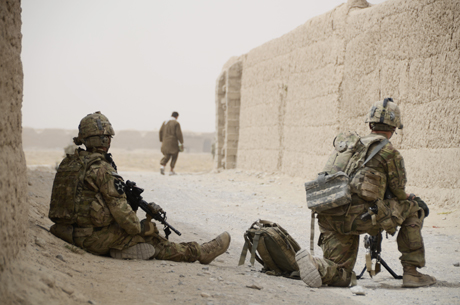Mild Traumatic Brain Injury and Deployment Associated with Inflammatory Abnormalities in Veterans of the Iraq and Afghanistan Wars
Mild traumatic brain injury from improvised explosive devices is an injury particular to veterans of the wars in Iraq and Afghanistan. As has been seen in some athletes who sustain repeated mild traumatic brain injuries, such as boxers and football players, neurodegenerative dementias such as chronic traumatic encephalopathy can follow these repeated brain injuries. Researchers are hoping to identify biomarkers that would help in the diagnosis and monitoring of repeated blast-induced mild traumatic brain injury. Researcher Elaine Peskind and colleagues have determined that both deployment to these wars and mild traumatic brain injuries received there are associated with increased inflammatory cytokines in cerebrospinal fluid.
In the study, veterans who had been deployed to Iraq or Afghanistan and had received mild traumatic brain injuries were compared to veterans who were deployed but who were not similarly injured and community participants who had neither been deployed nor experienced a brain injury. The average number of concussion-inducing blasts veterans in the first group had experienced was 14, with the latest occurring an average of four years prior to the study.
Inflammatory cytokine IL-7 was elevated in the spinal fluid of those veterans who had sustained brain injuries. IL-6 was higher both in those deployed and in those who sustained blasts. Eotaxin and granulocyte colony stimulating factor were higher in all of the veterans who had been deployed.
These cytokine abnormalities could account for behavior and cognitive difficulties associated with traumatic brain injury. The researchers concluded that both deployment and mild traumatic brain injury were associated with neural damage and neuroimmune responses.
Editor’s Note: Michael E. Hoffer et al. reported in the journal PLosOne in 2013 that veterans with blast-induced mild traumatic brain injury had a better acute outcome when they were given the antioxidant N-acetylcysteine (NAC) within the first 24 hours after the trauma. It is interesting to speculate whether this could be explained by NAC’s anti-inflammatory effects, its enhancement of another antioxidant (glutathione), or its ability to increase glial glutamate transporters.
Researcher Dewleen Baker reported in a personal communication to this editor (Robert Post) that in her patients, traumatic brain injury was also associated with white matter abnormalities, and that these injuries conveyed an increased risk of developing PTSD as well.


